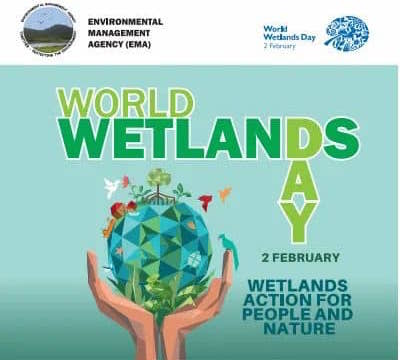|
Getting your Trinity Audio player ready…
|
By Sowell Chikwari
Civil society organisations have raised concerns over the decimation of wetlands in urban peripheries owing to housing construction and agricultural activities as it negatively impacts the environmental ecosystem.
The City of Harare is among the most affected cities in terms of the depletion of wetlands, a situation that has grossly affected the provision of water and sanitation services.
Civil society organisations contend that more needs to be done to protect wetlands in order to extenuate climate change effects.
The Combined Harare Residents Association (CHRA) chairperson Beatrice Ngwenya said, “We have seen a decline in groundwater recharge which has affected water quantity in Harava and Seke dams thereby affecting water supply. As you are aware that last year the City of Harare had to decommission Prince Edward water works due to a serious decline in water levels. On the other hand, Lake Chivero, Seke, and Harava dams have lost water storage capacity due to siltation emanating from stream bank and wetland cultivation activities.
“We are, however, worried that demolitions of houses built on wetlands have become a serious class issue where the poor masses are targeted while commercial buildings are left. The Wetlands issue must be part of the 2023 elections agenda,” she added.
The Urban Councils Association of Zimbabwe communications officer Chris Musekiwa weighed in saying, “It is important to preserve wetlands because they improve water quality and water supply. They are habitats for wildlife, they maintain ecosystem productivity, which is the rate of generation of biomass in the ecosystem. Biomass in an ecosystem is the mass or weight of living tissue. Wetlands also provide recreational opportunities and opportunities for education. The benefits are countless hence it is paramount to preserve them.”
The increased calls for the preservation of wetlands come as the nation commemorates World Wetlands Day, observed each year on 2 February to raise awareness about wetlands. The day also marks the anniversary of the Convention on Wetlands, adopted as an international treaty in 1971 in the Iranian city of Ramsar.
This year’s commemorations run under the theme “Wetlands Action for People and Nature”, highlighting the need for adopting feasible use of natural resources and employing strategies to promote the conservation and sustainable use of wetlands.
The call to take stern measures to safeguard wetlands is the main focus of this year’s campaign. It’s the first year that World Wetlands Day is observed as a United Nations international day, after its adoption by the General Assembly on 30 August 2021.
The environment conservation group, Bamboo Zimbabwe’s founding president Tinashe Chidau said, “As Bamboo Zimbabwe, our thrust is to promote sustainable use of natural resources such as furthering afforestation programs to prevent soil erosion through growing bamboo plantations to mitigate adverse effects of climate change. Bamboos help balance the natural ecosystem.
“During our inaugural World Bamboo Day commemorations for Zimbabwe on September 18 last year we stressed the need for continuous awareness and reforestation programs to encourage the adoption of bamboos as a means to reclaim wastelands,” he added.
